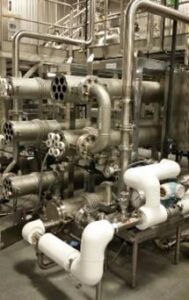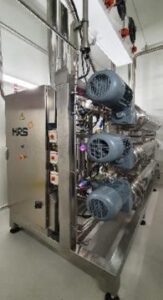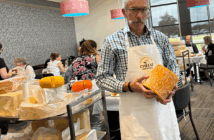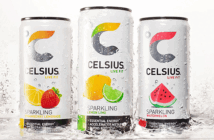While meat ingredients used for pet food need to achieve the necessary quality and hygiene standards, the fact remains that for many processors, the meat products used in the production of pet food have come from the waste and co-product streams of meat processing for human consumption. With this in mind, it is easy for such pet food ingredients to become treated as waste, or at best a nuisance until they have left the food processing site. However, doing so wastes the opportunity to increase ingredient quality and value. International sales and marketing director for HRS Heat Exchangers, Matt Hale explains.

International sales and marketing director for HRS Heat Exchangers, Matt Hale
There are both quality and regulatory reasons for keeping ingredients cool, including chilling waste and co-products as quickly as possible after processing, and maintaining cold chain conditions during storage and transport. However, due to the highly viscous nature of materials such as meat slurry and mechanically deboned meat (MDM) it is important to choose the right type of heat exchanger. Scraped surface heat exchangers provide a number of benefits, including better product mixing, less fouling and better heat transfer.
Another benefit of using scraped surface heat exchangers is that they reduce the risk of the product freezing during cooling: the thick, viscous nature of the material combined with low-temperature cooling solutions such as glycol, means that a phenomenon known as ‘slugging’ can occur. This is where a channel of warmer product travels down the centre of the heat exchanger while the product at the tube wall does not move. This can create the risk that the product at the tube wall will freeze, while the material in the centre is not cooled sufficiently.
However, there is a balancing act when it comes to handling pet food ingredients. While they need sufficient mixing, meat products and slurries need delicate handling to maintain texture and quality.

The HRS Unicus reciprocating scraped surface heat exchanger is used for meat products with high fouling potential, but which need delicate handling
HRS R Series
The HRS R Series of scraped surface heat exchangers uses a patented rotary scraper bar which can reach speeds up to 300 rpm, providing high levels of shear and mixing at the heat transfer surface which dramatically increases heat transfer rates. This makes it particularly suitable for challenging heat transfer applications, such as those where the product requires high pressures or has high viscosity.
When creating solutions for highly viscous pet food ingredient processing (and handling other meat products such as sausage meat), the internal scraper configuration of the standard R Series may be adapted to achieve improved thermal performance, while a heavy-duty gearbox is usually specified to withstand the higher torques required to keep the product moving through the heat exchanger.

The HRS R Series of rotating scraped surface heat exchangers is ideal for processing meat products, including pet food
HRS Unicus Series
The patented Unicus Series is designed to provide unrivalled heat transfer of a wide range of difficult meat products which have high fouling potential, but also need delicate handling to preserve fragile product integrity.
A process of continual improvement means that Unicus heat exchangers are now available with a wide range of scraper designs, providing even more choice for applications from cooling to sterilising and everything in between. The hydraulically powered reciprocating movement performs two key functions; firstly, it minimizes potential fouling of the product by keeping the tube wall clean, and secondly, it creates turbulence within the material. Both of these actions help to increase heat transfer rates creating a highly efficient heat transfer process ideal for viscous and high fouling materials.
Another benefit is the fact that the separate hydraulic action enables the speed of the scrapers to be controlled and optimised for the product being processed. This means that materials that may be susceptible to shear stress or pressure damage, such as chunks with jelly and gravy, can be handled gently while still providing high levels of product identity.

Correct materials handling and cooling can turn potential waste into a valuable pet food ingredient
Whatever co-product or raw material you wish to utilise, HRS has a heat exchanger solution to turn potential waste into a valuable ingredient, helping both the environment and your bottom line.




























































































